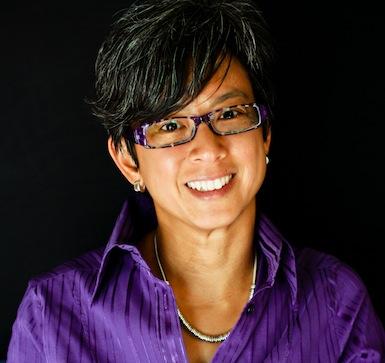
TO KNOW MORE ABOUT THE GLOBAL DEVELOPMENT LAB:
https://www.usaid.gov/GlobalDevLab
Less than two years old, the USAID Global Development Lab is bringing private-sector investment strategies to developing countries. Executive Director Ann Mei Chang — a Google alum — sat down with Federal Times Senior Writer Aaron Boyd to talk about the Lab’s current programs, what’s ahead for the future and what other federal agencies can learn from their work.
What is the Global Development Lab and where does it fit into USAID and the State Department as a whole?
The U.S. Global Development Lab is the newest bureau at USAID. We were launched in April 2014. We have a twofold mission. On one hand we're trying to find breakthrough innovations that can really transform development and bring those to scale. On the other hand, we're trying to fundamentally transform the way we do development itself through modern tools and approaches.
How does this fit in with the rest of USAID. How independent is the Lab, or do you take your cues from other parts of the organization?
The Global Development Lab is very much an integral part of USAID. On one hand we spend about a third of our time really casting a wide net to find the best tools, approaches and innovations from across the agency and around the world. Then what we do is take all of those things and look at how we can apply them to the problems the agency is trying to solve. We see ourselves as a catalyst and as a partner to the rest of the agency in bringing the best tools, approaches and innovations to the important work that the agency is doing.
When people say lab – especially development lab— you think of people working on new tools and things like that. That's not really what you guys do here. Can you talk about, one, what you mean by development and, two, what you mean by lab.
Yes, the Global Development Lab is not a lab in itself. We don’t actually have beakers and test tubes here where we're mixing things up. USAID is a funding agency. We fund implementing partners who do the work for us. When we talk about development, what we mean is international development. We're trying to, as the mission of USAID states, end extreme poverty and promote more resilient and democratic societies. In one way you can think about it is that we are working towards meeting the new, global goals, the new sustainable development goals. That's very much the work of the agency. The work of the lab is really to bring the most modern tools and approaches to that endeavor. We are trying to bring in the things that can be transformative, that can have a step-order change in helping us to reach those goals whether it's better, faster, cheaper or more sustainable and hopefully all of the above.
Over the last year, two years, there's really been a push across the federal government to look at what the commercial sector is doing and try and bring in more of those best practices and even people. You yourself come from Google. You're a great example of that. At the Lab, you go out and find things that are working somewhere, adapt them to a specific challenge and push that out. How does this approach differ from developing new things in house?
I think of the Global Development Lab really as sort of an advanced development lab. We are not trying to invent things completely from whole cloth. What we're trying to do is to take things that have really been proven, for example, technologies that have been vastly transformational in the developed world and look at how we can apply them to the problems in developing countries. We're also trying to take innovations that are starting to show success in development arenas and then look at how we can support them to help them with their resources and the expertise they need to really reach scale.











Add new comment